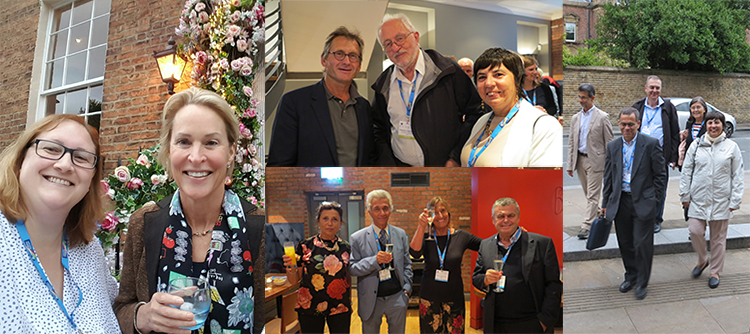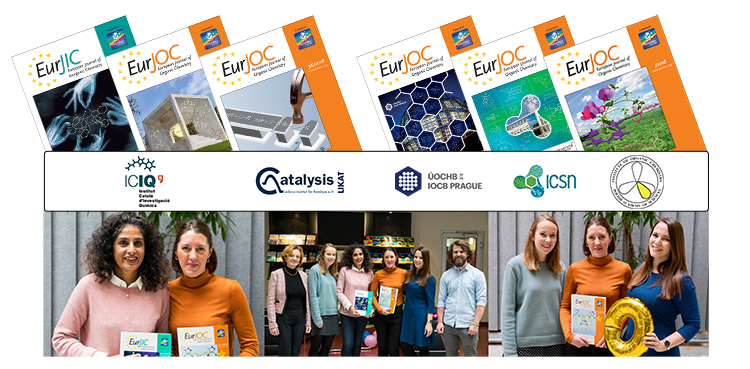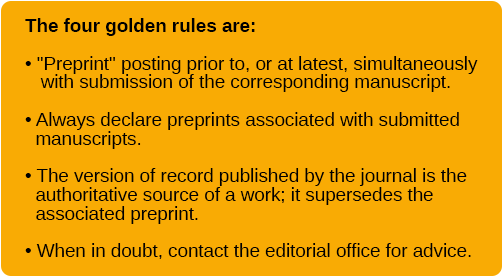Another productive and innovative year in chemical publishing is the outcome of fruitful collaboration and a commitment to working with and for people. ChemPubSoc Europe is proud to embody the principles of an inclusive European spirit. Our 16 high-quality publications strive to serve the modern chemical research community in Europe and around the world.
At the close of 2018, the publishing house is pleased to report on a number of changes, which have come about after close consultation with our European owner societies. Our editors have been listening to the research community carefully and we understand that, for the modern researcher, recognition, speed, and connectivity are paramount.
Recognizing Researchers
ChemPubSoc Europe’s highlight of the year was a special reception held for 37 ChemPubSoc Europe Fellows (Class 2016/2017) at the 7th EuCheMS Chemistry Congress (7th ECC) in Liverpool, UK. This title is the highest accolade that ChemPubSoc Europe can bestow and is, at its heart, an acknowledgment by 16 European chemical societies of an extraordinary commitment to excellence in scientific dissemination. This year’s recipients included Nobel Laureate Ben Feringa. The 8th ECC in Portugal 2020 promises to be an exciting event in which ChemPubSoc Europe will certainly participate. We look forward to seeing you there!
 |
|
Caption: At the ChemPubSoc Europe Fellows (Class 2016/2017) reception in Liverpool, UK, 2018. |
ChemPubSoc Europe journals are continuing their programs to support young talent. ChemBioChem‘s ChemBioTalents, ChemCatChem‘s Young Researcher Series, and ChemPlusChem‘s Early Career Series are ongoing projects that highlight and reward the talents of young researchers. This year the recipient of the first ChemPubSoc Europe Early Career Award—a standout contributor to ChemPlusChem‘s Early Career Series—was Dr. Jun-Long Zhang from Peking University. Dr. Zhang presented his award lecture titled “Design of NIR Luminescent Ln Complexes for Biological Applications” in September 2018, in Lausanne, Switzerland, at the 10th International Conference on f-Elements (ICFE-10). This December, EurJOC’s 44th issue is proud to promote the European COST Action “C–H Activation in Organic Synthesis” (CHAOS). CHAOS has been a generous supporter of young researchers, many of whom are featured in this diverse Special Issue.
In Summer 2018, EuJOC and EurJIC launched their popular Institute Features series. To date, two jointly published Special Collections highlight research taking place at the Institute of Chemical Research of Catalonia (ICIQ, Spain) and the Leibniz Institute for Catalysis (LIKAT, Germany), a EurJOC Special Issue puts the Institute of Organic Chemistry and Biochemistry in Prague (IOCB, Czech Republic) in the spotlight, and two upcoming EurJOC issues feature research at the Institute of Chemistry of Natural Substances (Gif-sur-Yvette, ICSN, France) and the Institute of Organic Chemistry in Warsaw (ICHO, Poland).
 |
|
Caption: Institute Features published by EurJIC and/or EurJOC teams in 2018. Photo credit: Mario Müller. |
Elsewhere in the ChemPubSoc Europe journal family readers can enjoy recent Special Issues on the themes of optogenetics (ChemBioChem), single-entity electrochemistry (ChemElectroChem), renewable energy (Chemistry–A European Journal), future energy technology (ChemPlusChem), and flow photochemistry (ChemPhotoChem).
ORCID Reviewer Recognition Program
Talented referees are the backbone of high-quality scholarly publication and are typically experts in their fields, community-minded, curious, and vigilant. Referees benefit from engagement in peer review too; they are the first to learn of cutting-edge discoveries, they may derive satisfaction from their role as gatekeepers of the scientific record, and they may see it as both a duty and a pleasure to guide their peers into more robust and innovative scientific practices.
 The anonymity associated with single-blinded peer review can be frustrating for referees, who are not directly credited with the expertise and time that they volunteer to their community. ChemPubSoc Europe journals want to help referees gain acknowledgment for the reviewing work that they do. For this reason, the publishing house has partnered with ORCID, the persistent digital identifier service, to recognize refereeing services performed for our journals.
The anonymity associated with single-blinded peer review can be frustrating for referees, who are not directly credited with the expertise and time that they volunteer to their community. ChemPubSoc Europe journals want to help referees gain acknowledgment for the reviewing work that they do. For this reason, the publishing house has partnered with ORCID, the persistent digital identifier service, to recognize refereeing services performed for our journals.
From January 2019, referees will have the opportunity to record their reviewing activities as they submit their reports. Referees will be asked to authorize updating of their ORCID profile when preparing reports in the Review Form in Editorial Manager. Alternatively, an “ORCID Deposit Authorization” link will be available in the Completed Assignments folder of a reviewer’s Editorial Manager profile. These details are added on the ORCID site as “Peer review activity” under the “My works” sub-menu. To ensure that your personal reviewing record is updated, simply log in to ORCID and authorize publication of the reviewing activity associated with your ORCID account. This functionality will become available for reviewing activities carried out from January 2019 only.
ORCID reviewer recognition will be available for most article types and can be considered as an authenticated record of the refereeing activities of a reviewer. Moreover, anonymity is retained with this new functionality as the ORCID record will only document the journal for which an individual has reviewed. To ensure that reviewing records are meaningful to peers, research institutes, and funding agencies, authors are encouraged to update their personal ORCID account regularly. Other affiliated journals—Angewandte Chemie and ACES journals—will offer the same recognition program.
Preprints: Rapid Dissemination and Increased Connectivity
Since the early 90s, preprints have been a familiar element of scholarly publishing for researchers working in the physical and mathematical sciences. The chemical community has been reluctant to adopt preprints until recently. However, a preprint server launched by the American Chemical Society (ACS) in August 2017, ChemRxiv, has had a warm reception. ChemRxiv is officially endorsed and co-owned by the leading chemical societies the ACS, the German Chemical Society (GDCh), and the Royal Society of Chemistry (RSC).
 As of 2018, ChemPubSoc Europe journals are considering submitted manuscripts that have been previously posted on a not-for-profit preprint server such as ChemRxiv. To facilitate the transfer of preprints to ChemPubSoc Europe journals, authors may now take advantage of a direct transfer function in ChemRxiv. Read the ChemRxiv editorial for more information. ChemPubSoc Europe journals will also consider directly submitted manuscripts that have been previously posted as a preprint. We are developing comprehensive guidelines to help our authors navigate preprints, which are in line with the guidance of the Committee on Publication Ethics (COPE).
As of 2018, ChemPubSoc Europe journals are considering submitted manuscripts that have been previously posted on a not-for-profit preprint server such as ChemRxiv. To facilitate the transfer of preprints to ChemPubSoc Europe journals, authors may now take advantage of a direct transfer function in ChemRxiv. Read the ChemRxiv editorial for more information. ChemPubSoc Europe journals will also consider directly submitted manuscripts that have been previously posted as a preprint. We are developing comprehensive guidelines to help our authors navigate preprints, which are in line with the guidance of the Committee on Publication Ethics (COPE).
Authors will have noticed changes to the copyright transfer agreement signed with the publishing house. These make legal allowances for posting of a preprint on a reputable, not-for-profit, preprint server prior to publication at ChemPubSoc Europe journals. Moreover, our journals are currently consolidating their author guidelines into a single Notice to Authors, so as to simplify the experience of submission and to clarify ChemPubSoc Europe’s stance on preprints. The revised Notice to Authors will be made available early in the New Year.
Thank you for reading! This issue of the ChemPubSoc Europe newsletter also explores the secret life of new journals and highlights projects planned by ChemPubSoc Europe’s publications in 2019. Please click through to learn more.
-> Back to ChemPubSoc Europe Newsletter